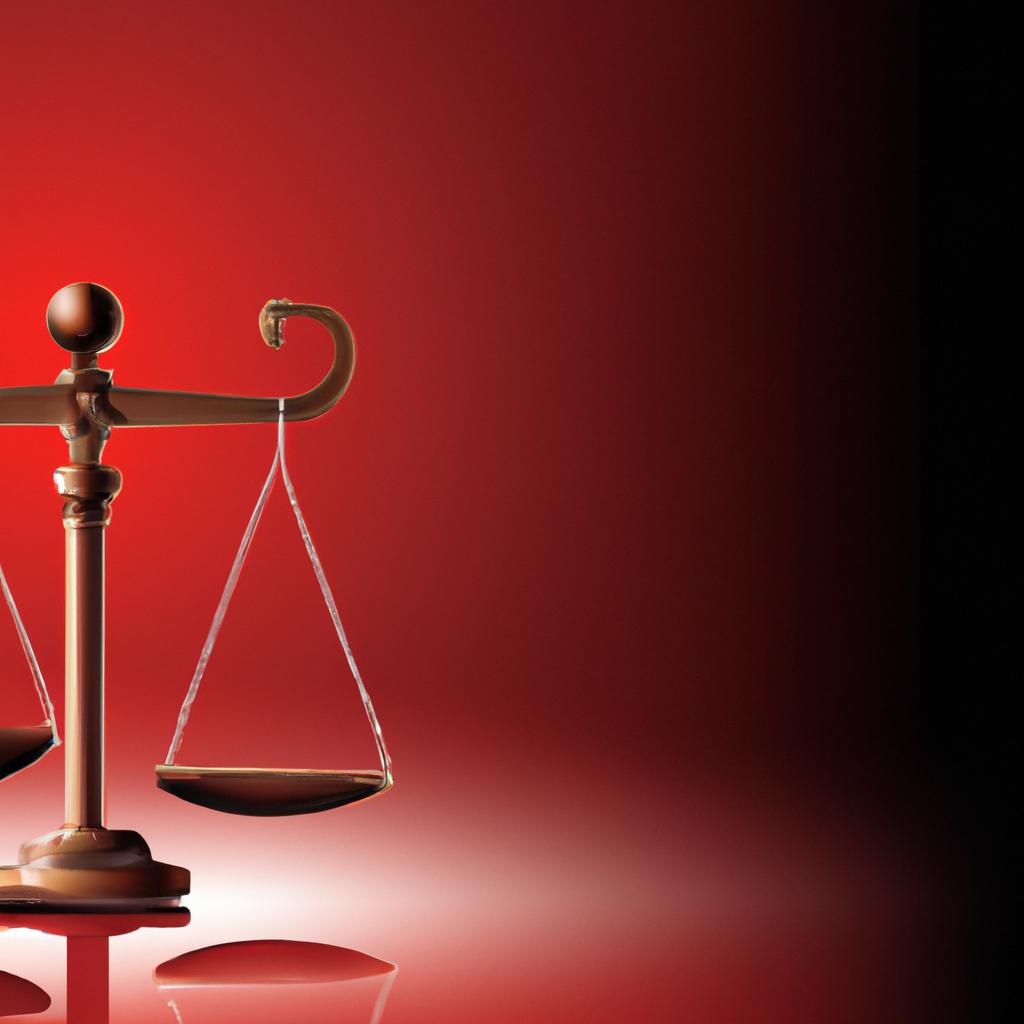In the realm of estate planning, the concept of a “to do list after death” holds crucial importance in ensuring the seamless transition of assets and affairs upon one’s passing. As seasoned attorneys at Morgan Legal Group, situated in the bustling metropolis of New York City, we specialize in providing expert guidance on matters of probate, elder law, Wills, and trusts. Join us as we delve into the essential steps to be taken posthumously, shedding light on the intricacies of tying up loose ends and fulfilling final wishes with precision and care.
Post-Mortem Checklist for Estate Planning
After the passing of a loved one, it is important to ensure that their estate is handled properly and in accordance with their wishes. To assist you in this process, we have compiled a . This checklist will help you navigate the often complex and overwhelming tasks that come with managing an estate.
Some key items to consider include gathering important documents such as the decedent’s Will, trust documents, and insurance policies. It is also crucial to notify relevant parties, such as financial institutions, creditors, and government agencies, of the death. Additionally, you will need to inventory assets, pay outstanding debts and taxes, and distribute assets to beneficiaries as outlined in the decedent’s estate plan. Our team at Morgan Legal Group is here to provide guidance and support throughout this process.

Key Components of an Effective Will
When it comes to creating a comprehensive and effective will, there are several key components that should be included to ensure your final wishes are carried out smoothly. One important element is clearly identifying yourself as the testator and providing your full name, address, and any other identifying information. You should also appoint an executor who will be responsible for managing your estate and carrying out your wishes. This individual should be someone you trust and who is willing to take on the responsibility.
Additionally, it is crucial to clearly outline how you want your assets to be distributed among your beneficiaries. This can include specific bequests, such as leaving certain items or sums of money to particular individuals, as well as outlining how the remainder of your estate should be divided. It is also important to consider including provisions for any minor children or dependents, as well as addressing any potential contingencies that may arise. By including these key components in your will, you can help ensure that your final wishes are followed and that your estate is handled according to your intentions.

Maximizing the Value of Your Estate
When it comes to after your passing, there are several important steps that should be taken. One crucial aspect is creating a comprehensive estate plan that includes a Will, trusts, and other legal documents that clearly outline your wishes and distribution of assets. It is also essential to regularly review and update your estate plan to ensure it accurately reflects your current circumstances and desires.
Another important task to consider is minimizing potential estate taxes by utilizing strategies such as gifting assets during your lifetime and setting up irrevocable trusts. Additionally, it is imperative to organize and maintain detailed records of your assets, debts, and other important financial information to make the probate process smoother for your loved ones. By taking these proactive measures, you can help ensure that your estate is handled according to your wishes and that your loved ones are provided for in the best possible way.

Ensuring Your Final Wishes are Met
is a crucial part of estate planning. After your passing, it is essential to have a detailed to-do list in place to guide your loved ones and ensure that everything is handled according to your wishes. Here are some important tasks to consider:
- Review and Update Your Will: Make sure your Will is up-to-date and accurately reflects your wishes. Consider any changes in your family or assets that may require updates to your Will.
- Notify Key Individuals: Inform key individuals such as your executor, trustees, and beneficiaries about your passing. Provide them with copies of relevant documents and instructions on how to proceed.
- Secure Important Documents: Keep important documents such as your Will, trust documents, insurance policies, and financial account information in a secure location that is easily accessible to your loved ones.
Additionally, consider creating a detailed list of your assets and liabilities, including bank accounts, real estate, investments, debts, and digital assets. This information will help your executor and loved ones efficiently manage your estate and distribute your assets according to your wishes. Remember to also consider any specific funeral or burial instructions that you may have, and communicate them clearly to your loved ones. Taking these proactive steps can help ensure that your final wishes are met and provide peace of mind for you and your loved ones.
Q&A
Q: What should be included in a “to do list after death”?
A: Your to do list after death should include tasks such as informing loved ones, handling financial matters, and making arrangements for your estate.
Q: Why is it important to have a to do list after death?
A: Having a to do list after death can help ensure that your final wishes are carried out and that your loved ones are taken care of.
Q: What are some common tasks that need to be completed after someone dies?
A: Common tasks that need to be completed after someone dies include notifying friends and family, arranging for a funeral or memorial service, and dealing with legal matters such as obtaining a death certificate and probating the will.
Q: How can I create a to do list for after my death?
A: You can create a to do list for after your death by making a list of tasks that need to be completed, prioritizing them, and assigning them to trusted friends or family members.
Q: Can a to do list after death help alleviate stress for loved ones?
A: Yes, having a to do list after death can help alleviate stress for loved ones by providing them with guidance on how to proceed and ensuring that your final wishes are carried out.
In Summary
As we wrap up our exploration of what to do after death, it is important to remember that the end of our physical lives does not mark the end of our impact on the world. Whether it is putting our affairs in order, leaving a legacy for loved ones, or making arrangements for our final resting place, there are many tasks to consider posthumously. By taking the time to create a plan for after death, we can ensure that our wishes are carried out and our loved ones are taken care of. So, as we face the unknown journey that lies ahead, let us approach it with thoughtfulness, care, and a sense of preparedness. After all, death may be inevitable, but how we prepare for it is entirely in our hands.
 Title: “The Ultimate To-Do List After Death – What You Need to Know”
Title: “The Ultimate To-Do List After Death – What You Need to Know”
Death is an inevitable part of life that we often don’t want to think about. However, it’s important to be prepared for what comes after we pass away. While we may not be around to witness it, our loved ones will have to handle our affairs and ensure that our final wishes are carried out. That’s where a to-do list after death comes in. It can help make the process smoother and alleviate any additional stress on our loved ones during a difficult time.
In this comprehensive guide, we’ll discuss the ultimate to-do list after death and what you need to know to ensure your affairs are taken care of after you’re gone. From practical tips to case studies and first-hand experiences, we’ll cover it all. So, let’s get started.
The Benefits of Having a To-Do List After Death:
1. Ensure Your Final Wishes are Carried Out:
A to-do list after death can serve as a guide for your loved ones to fulfill your final wishes. It can include instructions for your funeral arrangements, organ donation, and any other specific requests you may have. By having these wishes outlined, your loved ones won’t have to guess or make difficult decisions on your behalf.
2. Avoid Family Conflicts:
Losing a loved one can be a challenging and emotional time for family and friends. Unfortunately, when it comes to settling the deceased’s affairs, disputes and conflicts can arise. Creating a to-do list after death can help prevent any misunderstandings or disagreements among family members.
3. Ease the Burden on Your Loved Ones:
Losing a loved one is difficult enough without having to navigate unfamiliar territory. By having a to-do list after death, you can take some of the burdens off your loved ones. This way, they can focus on grieving and celebrating your life instead of worrying about what needs to be done.
Practical Tips for Creating a To-Do List After Death:
1. Gather All Important Documents:
The first step in creating a to-do list after death is to gather all your important documents. This includes your will, birth certificate, social security card, insurance policies, and any other legal documents. Having these documents in a safe and easily accessible location will make it easier for your loved ones to manage your affairs.
2. Make a List of Your Assets and Debts:
It’s crucial to make a list of all your assets, including bank accounts, investments, property, and any other valuable possessions. Also, don’t forget to list your debts, such as credit card balances, mortgages, and loans. This information will help your loved ones understand your financial situation and handle your estate correctly.
3. Decide on Your Final Wishes:
As mentioned earlier, your to-do list after death should include your final wishes. This can include your preferred funeral arrangements, burial or cremation preferences, and any other specific requests, such as music or readings for your memorial service. You may also want to consider making arrangements for your pets if you have any.
4. Choose an Executor:
An executor is responsible for managing your estate and ensuring that your final wishes are carried out. It’s essential to choose someone you trust and who is capable of handling the responsibilities that come with this role. You can name a family member, friend, or even a professional executor if you don’t have a suitable candidate.
5. Update Your Beneficiaries:
It’s essential to regularly review and update your beneficiaries on financial accounts and insurance policies. This will ensure that your assets are distributed according to your wishes and that your loved ones are not left with any unexpected surprises or disputes.
6. Consider Life Insurance:
Life insurance can provide financial security for your loved ones after you’re gone. It can help cover any immediate expenses such as funeral costs, outstanding debts, and living expenses. It’s worth considering as part of your overall to-do list after death.
Case Studies and First-Hand Experiences:
1. The Importance of Having a Will:
Without a will, your assets will be distributed according to state laws, which may not align with your wishes. This was the case for John, who passed away without a will, leading to disagreements among family members and costly legal battles. Don’t leave these decisions to chance; instead, take the time to create a will and update it regularly.
2. Organ Donation Saves Lives:
Sarah always wanted to be an organ donor, but she never got around to making it official. After her sudden passing, her family discovered her internal dialogue and decided to honor her wish. Sarah’s organ donation saved six lives, and her family found solace in knowing that she lived on through these generous acts.
3. Embrace Digital Estate Planning:
In today’s digital age, it’s crucial to include your digital assets in your to-do list after death. This can include passwords to your accounts, instructions for social media platforms, and even your online photo library. Without this information, your loved ones may have a difficult time accessing and managing your digital assets.
In Conclusion:
Creating a to-do list after death may not be a pleasant task, but it can provide a sense of peace knowing that your affairs are in order. By following these practical tips and learning from the experiences of others, you can ensure your final wishes are carried out efficiently, and your loved ones are taken care of. Remember to review and update your to-do list regularly, making any necessary changes as your life and circumstances change. And most importantly, don’t wait until it’s too late to start planning for the inevitable. Take charge of your affairs now, so your loved ones can focus on cherishing your memory when the time comes.

